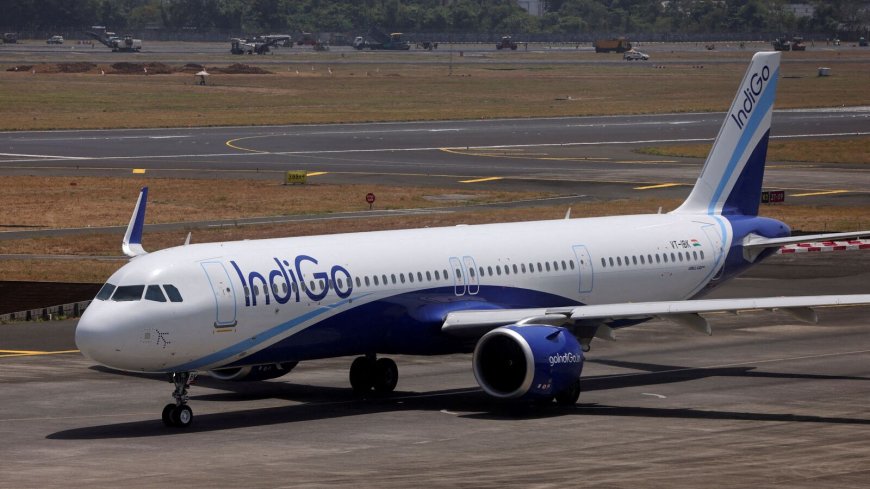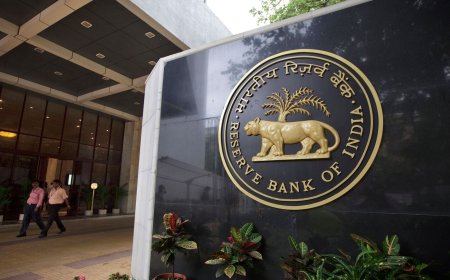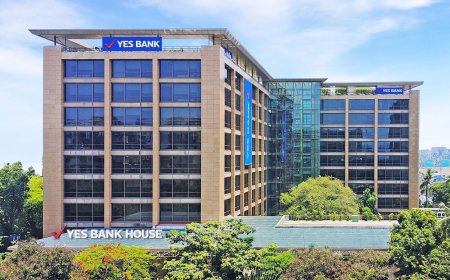IndiGo Secures Final Three-Month Extension to Lease Turkish Airlines Jet
India’s largest airline IndiGo receives a one-time, three-month extension to wet-lease a Turkish Airlines aircraft amid capacity constraints, following DGCA’s conditional approval.

IndiGo Gets 'One Last Time' 3-Month Extension to Lease Turkish Airlines Aircraft
New Delhi, May 31, 2025 — In a crucial move that allows India’s largest airline to maintain uninterrupted operations on its high-demand international routes, IndiGo has received a conditional three-month extension to continue wet-leasing a wide-body aircraft from Turkish Airlines. The extension, described as the "last and final" allowance by India’s aviation regulator, the Directorate General of Civil Aviation (DGCA), offers a temporary reprieve to the carrier amid ongoing fleet expansion challenges.
The aircraft in question, a wide-bodied Airbus A330-200 operated by Turkish Airlines, has been instrumental in helping IndiGo bridge a capacity gap on select routes—particularly to Istanbul and beyond—since early 2023. While the airline had previously secured multiple extensions, the DGCA has now made it clear that no further renewals will be granted under the current agreement.
DGCA’s Conditional Nod: Extension With Strings Attached
The DGCA’s latest approval is valid for a maximum of three months, expiring in August 2025, and comes with strict oversight provisions. Sources within the regulatory body confirmed that the green light was given after “careful assessment of operational needs” and passenger service continuity concerns. However, it was also emphasized that the extension must be utilized to expedite IndiGo’s transition toward operating its own wide-body fleet.
“This will be the last such approval. IndiGo must now accelerate steps toward fleet indigenization and avoid recurring reliance on wet-leased foreign aircraft,” said a senior DGCA official who requested anonymity due to internal policy.
Under the wet lease arrangement, Turkish Airlines continues to provide the aircraft, crew, maintenance, and insurance (ACMI model), while IndiGo markets the service under its own flight codes and handles ticketing and customer service.
Strategic Importance of the A330 on Long-Haul Routes
IndiGo’s international ambitions received a major boost with the introduction of the Turkish Airlines A330 in 2023. With a seating capacity of around 250 passengers and a flying range exceeding 13 hours, the aircraft enabled the low-cost carrier to tap into longer-haul destinations and improve its connectivity with Europe and the Middle East through Istanbul.
The A330 has been primarily deployed on the Delhi–Istanbul and Mumbai–Istanbul routes, which serve as a feeder into Turkish Airlines’ extensive European network. According to aviation analytics firm Cirium, IndiGo’s code-share bookings with Turkish have increased by over 40% year-on-year, reflecting growing passenger appetite for seamless international connectivity.
Industry observers say the Turkish wet lease has been critical in helping IndiGo compete with legacy carriers like Air India and Emirates on select international corridors. However, the dependence on a third-party aircraft has drawn regulatory scrutiny, especially with IndiGo now progressing on its wide-body acquisition roadmap.
IndiGo’s Fleet Strategy: A Tipping Point
The DGCA’s "final" extension underscores the need for IndiGo to fast-track its wide-body fleet plans. Though traditionally a narrow-body Airbus A320-family operator, the airline has increasingly acknowledged the necessity of larger aircraft to capture long-haul market share.
In late 2024, IndiGo placed a non-binding Letter of Intent to lease multiple Airbus A350s and Boeing 787s for future expansion. However, actual induction of these aircraft has been slower than expected, due to supply chain disruptions and certification requirements.
“We're fully committed to bringing in our own wide-body aircraft and reducing reliance on wet leases,” an IndiGo spokesperson told reporters. “The three-month extension will ensure operational stability while we finalize internal preparations and training programs.”
Sources within the company indicate that the first of the leased Boeing 787-9 aircraft is now expected to join the fleet by Q4 2025, pending final approvals.
Regulatory Context: DGCA’s Evolving Stance on Wet Leasing
The DGCA has historically maintained a cautious approach toward wet leasing, viewing it as a stop-gap rather than a sustainable operating model. While exceptions have been made in the interest of passenger service continuity, the regulator is keen to ensure that Indian carriers build internal capability for long-haul operations.
Under Civil Aviation Requirements (CAR) Section 3, Series C, Part III, wet leasing is permitted only under exceptional circumstances, and all approvals are subject to stringent oversight, including monthly audit reports and flight safety assessments.
"The goal is not to cripple expansion, but to enforce long-term accountability," said aviation lawyer Renu Malhotra. “The DGCA is signaling to IndiGo and others that dependence on foreign ACMI operators is not a permanent solution.”
Industry Reactions: Experts See Pressure, Opportunity
Aviation analysts believe the DGCA’s stance will push IndiGo to align faster with full-service standards expected on long-haul routes.
“Operating wide-body jets independently means new training programs, new crew rosters, and potentially even soft product upgrades,” said Mark D’Souza, aviation consultant with AvServe Global. “This is a pressure moment for IndiGo, but also a huge opportunity to redefine its international identity.”
Competitors are watching closely. With Air India aggressively ramping up its wide-body fleet post-privatization and Vistara preparing for merger integration, IndiGo faces mounting pressure to maintain market share on routes to Europe, Australia, and the Middle East.
Passenger Implications: Consistency and Transparency Key
Passengers have largely responded positively to the Turkish-operated service, citing superior onboard amenities and connectivity options. However, there have been instances of confusion over branding and service standards due to the dual-operator nature of the flights.
Travel forums and social media platforms have recorded occasional complaints about differences in baggage policies, meal offerings, and in-flight announcements, particularly on return legs.
In response, IndiGo has reiterated its commitment to transparent communication. “All passengers are fully briefed on aircraft operator and service differences at the time of booking,” said the airline’s statement.
Government and Diplomatic Implications
The IndiGo–Turkish Airlines partnership also has a broader geopolitical dimension. India and Turkey have maintained stable, if occasionally tense, bilateral ties. Aviation partnerships such as these are seen as people-to-people connectors that transcend political dynamics.
However, government insiders suggest that prolonged dependence on a foreign state-backed airline for capacity could raise strategic concerns if left unchecked.
“Every time an Indian airline leases from a foreign carrier, there’s an element of external exposure,” noted former aviation secretary R.N. Sharma. “That’s not an issue in small doses, but it's good that the DGCA is drawing a line in the sand.”
What Comes Next?
With the three-month countdown now officially underway, IndiGo has a narrow window to prove its operational readiness to transition to self-operated wide-body services. The focus will be on ramping up internal capacity, onboarding experienced pilots, and ensuring the seamless induction of its forthcoming aircraft.
Additionally, industry watchers expect IndiGo to announce more code-share enhancements or new long-haul routes in the coming months to maintain momentum during the transition.
For now, the skies remain open—but the clock is ticking.
The DGCA’s decision to grant IndiGo a "final" three-month wet lease extension marks a defining moment in India’s civil aviation landscape. As the nation’s largest carrier navigates the complex shift from narrow-body dominance to long-haul international competition, its ability to build internal capabilities, deliver consistent passenger experience, and maintain regulatory trust will be critical.
With the Turkish Airlines Airbus A330 set to exit IndiGo’s fleet by August, all eyes will be on how India’s aviation powerhouse charts the next chapter of its global journey.
What's Your Reaction?
 Like
0
Like
0
 Dislike
0
Dislike
0
 Love
0
Love
0
 Funny
0
Funny
0
 Angry
0
Angry
0
 Sad
0
Sad
0
 Wow
0
Wow
0












































































